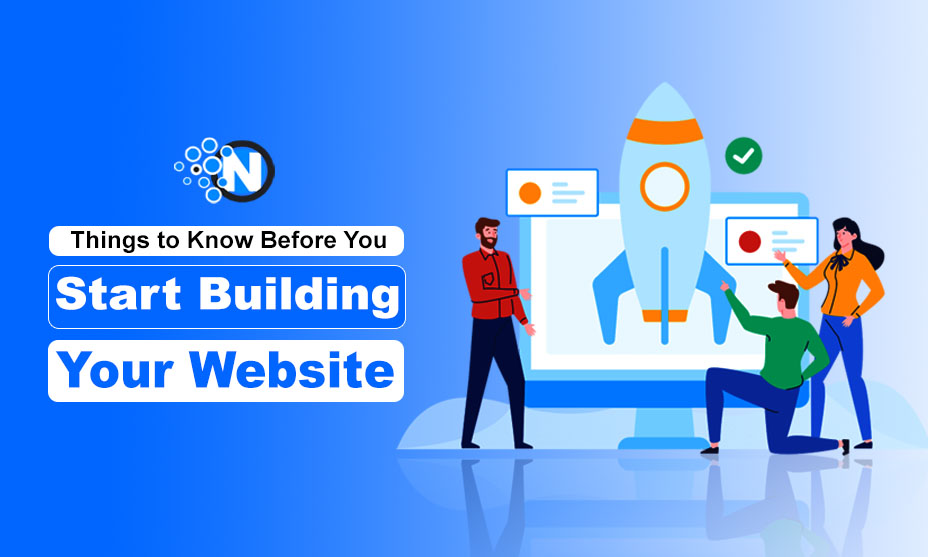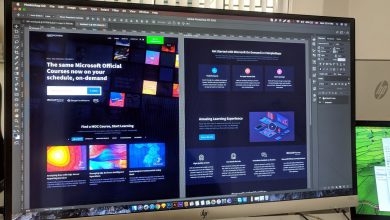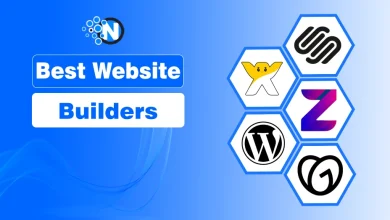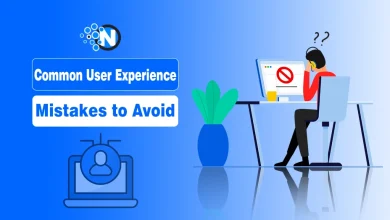5 Things to Know Before You Start Building Your Website

A branded website is a critical component of any business’s online strategy. Websites provide consumers with a way to purchase products and learn more about the company. You can even use your website to study your consumers and understand their buying habits. For these reasons, websites directly influence business growth and improve online visibility.
But before diving into web development, there are key aspects that need to be considered. Building a successful website takes a lot of hard work, so you need to know what your site will need in order to be successful. Being aware of all of the options and limitations of certain strategies will prevent you from making mistakes and wasting time.
1. Determine Your Goals
When building a website, get rid of your “one-size-fits-all” mentality. Your business is unique, so your website should be too. There are key strategies for every industry, so it is critical to know what category you fall in and what site features will work best for your business goals. Your bottom line will influence how your website is organized, the consumer experience, and what information you want to display.
Research and create your goals based on best practices within your industry. Retail strategies, for instance, do not quite match up to law firm strategies. With law firm digital marketing, it may be more important to inform the consumer of the strengths and expertise of the team. A retail website, however, may need to focus on moving a consumer down the sales funnel. Researching industry standards and determining your specific goals will help you ensure that your finished website best contributes to your growth.
2. Understand Your Options
There are multiple ways to build a website. You can start from scratch using a web host and coding it yourself, or you can use a web builder. For those without professional assistance, web builders like Squarespace and Webflow give non-developers the foundation to build a site that looks professional. The drawback to these options is that they often require subscriptions and may limit you on the site structure and features. The cost can also add up over time.
Depending on your goals, certain projects and technical aspects may require coding expertise or outside help. For businesses without a dedicated web team, hiring a freelance web developer can help you build a site that will last. It may be appropriate to pay this contractor long-term to maintain the website over time. An expert will help you determine the best hosting sites and framework for your business needs as well.
3. Secure Data is a Must
Data security is a big issue in the internet landscape, and it is an aspect you need to be aware of when you start web projects. Privacy and data have become legal matters in recent years, so your site needs to be built to follow industry standards and laws. Implementing firewalls, SSL certificates, and backup plans are just a few ways to protect your business against cyber attacks. This can also make your website come across as more trustworthy to visitors.
How you collect and maintain email addresses is a fundamental part of data security too. You need consumer consent to save data and include them in targeted marketing plans. Once you have collected this data, you must host it in a secure and protected place. If your features put your consumers at risk, and you get hacked or their information is leaked, you could be at the center of a legal issue. Including safety measures as a part of your website roadmap, in the beginning, will prevent data theft and protect your consumers in the long term.
4. There are Limitations
Unless you are a technology company with a fully dedicated website team, you will likely face some limitations when building your website. Most beginner sites can only handle a certain amount of visitors, for example. If your site is getting a lot of traffic, it can slow load speed and even crash the site. You should also ensure that your website previews appropriately across most web browsers. You do not want to start working on a web feature, just to discover Edge or Safari does not support it.
Integrating external features can also add some hurdles. Payment systems, for example, can get complicated, especially if you are building one yourself. You may have options to save money, but going with cheaper avenues may limit you in the long run. This is why it’s key to understand your business goals before you dive into development.
Research what features are worth investing in so that you do not hit a brick wall a few years later. You might be able to find software that integrates with your site, but it takes some trial and error to find the best choice for your business.
5. It’s a Continuous Effort
While you may often stumble upon outdated websites, it is not wise for you to maintain an outdated website. It often looks unprofessional, and it can make customers think you’re out of touch with current trends and best practices. A good website should add to your credibility and bring in revenue, but it will require continuous maintenance.
Industry changes may impact what works on your website and how you collect data. Features that work now may not necessarily work in five years, so continuing to update your website will prevent glitches and bad consumer experiences.
New technology improvements over the years can also improve your website and how you use it to analyze site visitors. For example, artificial intelligence has influenced how websites collect and use data. Once your website is published, keep your eye on new trends in web development. Keeping a pulse on trends and ways to improve your online presence can help you get the best results from your website.
Stay Golden With a Plan
Creating a website isn’t a one-and-done project. It takes planning and maintenance. Establishing your goals through ample research will help you appropriately allocate your resources and time toward website development. Jumping into your project with a solid plan will help you and your team build a website that can stand the test of time.




